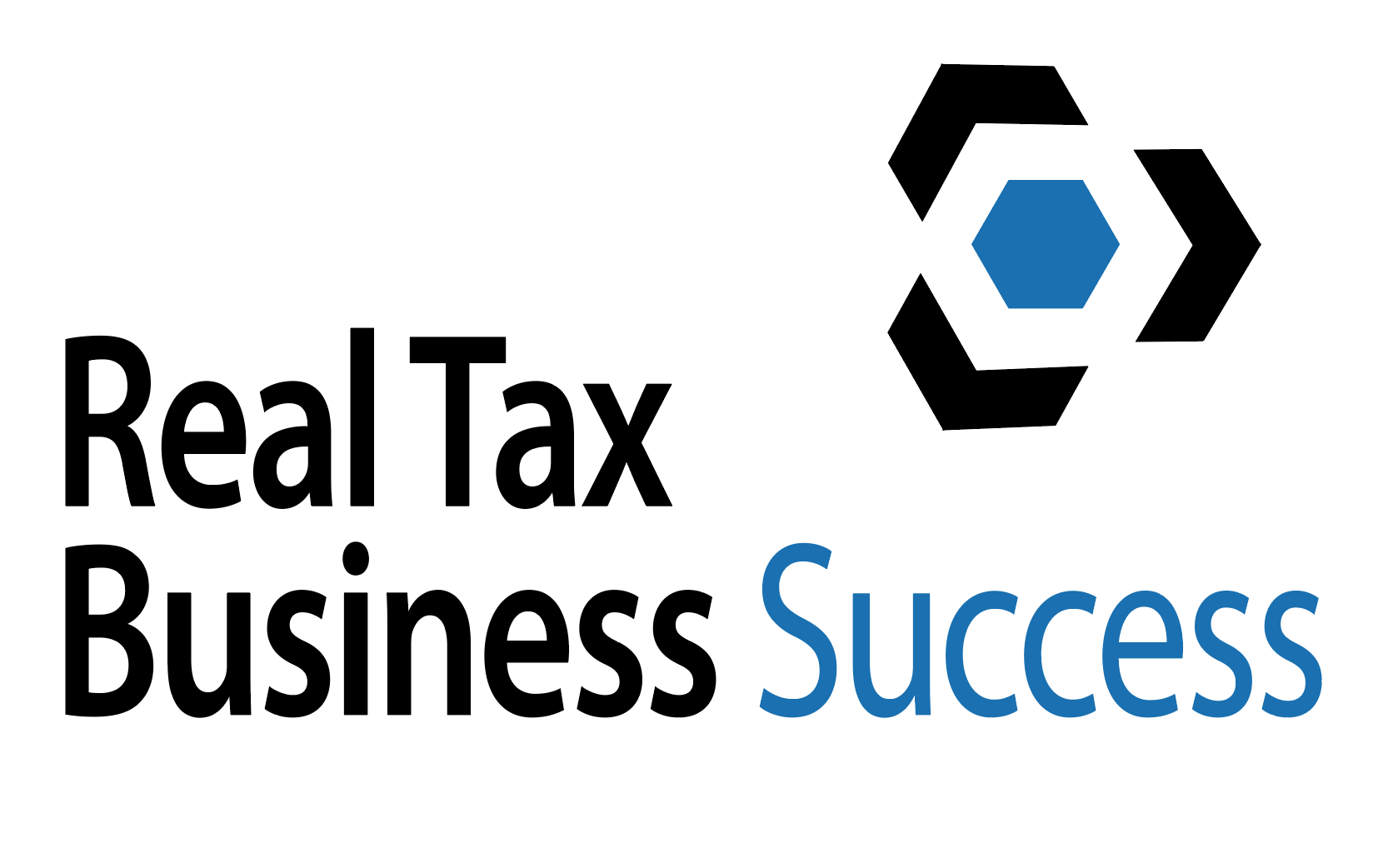
Real Tax Business Success
Lesson - 44
Leading Employees For Bottom Line Profit:
Bottom Line Advice
Author: Chauncey Hutter Jr.
Facebook
Twitter
Google+
Facebook
Twitter
Google+
As your tax office grows over the next few years, you will be forced to delegate more and more. Delegation is a good word, contrary to popular believe that “when you delegate something, it always gets screwed up!”
This is true for those who don’t know how to delegate properly! Most owners DUMP assignments on their staff and hope it works out alright. This is NOT delegating, this is a problem waiting to happen!
When you give something for someone else in your office to do, you always have to follow up at the beginning, middle or end (depending on your working relationship) with your employee. Don’t EXPECT them to get it right if you are NOT INSPECTING the work along the way.
No, that doesn’t mean “I might as well just do it if I have to inspect it all the time.” That would be foolish.
If you think you HAVE TO DO IT ALL then the sad reality for your life will be you will not grow and you will be chained to your office forever!
Once you understand this, your business will grow bigger and you will be able to spend less time ACTUALLY WORKING and maybe doing something else you like to do.
But here’s the key point:
NEVER STOP INSPECTING YOUR EMPLOYEES’ WORK, or you can expect to get burned in more ways than one. As soon as your employees “think” you are not watching what they are doing, they will slack up. It’s only human nature.
Here’s a good rule to evaluate any business decision you make.
(When I have not followed this rule in my own business, I have eventually gotten burned.)
“IF YOU CAN’T HOLD IT ACCOUNTABLE BY MEASURING SPECIFIC RESULTS, THEN DON’T DO IT!”
That’s true for your advertising, hiring new employees, adding a new service to your business and any other decision that comes up in your daily work life. (If you can’t measure its effectiveness, don’t do it -- PERIOD.)
Put it in writing, no exceptions.
I’ve found over the years that if I don’t put something down on paper, I’m not really serious about it. That means putting my goals in writing. It means putting instructions that I want followed properly in writing. I even put a “statement of understanding” on a piece of paper for temporary employees just so they are clear about what they have been hired to do.
(That goes double for regular employees. They will sign a “non compete” agreement before they start working with us, but they will also get one of these statements of understanding sheets, too.)
Why make such a big deal about putting things in writing, like goals, instructions or employee expectations? Because if you are serious enough to want to make these things run smoothly, you should make sure they get communicated properly.
What, do you think my mouth doesn’t work or something? No, we all can talk just fine around here. The problem stems from this “human” thing. We all make mistakes. And usually the first place mistakes happen are because of “communication” errors.
I mean, I KNOW I would say something as crystal clear as Rocky Mountain spring water, but my employee would swear they heard me say something totally the opposite! It happens. So if I don’t want to get into any “misunderstandings” with my staff, my vendors or whoever, I’ll put it in black and white!
Just for the recorded, reducing communication errors or cutting down on misunderstandings within your tax office will MAKE YOU MORE MONEY. I can look at the “stupid” mistakes we have made over the years that have cost us the most money, and 90% have something to do with a communication breakdown.
I figure I save my business over $10,000 per year cutting down on communication errors. And that doesn’t even include the “better employee relationships” that come from reducing misunderstandings about pay etc. (I’ve lost a few “good ones” in my early years because we
mis-communicated about salary.)
Don’t just think these are good ideas, start “putting it in writing” today!
Hire SLOW and fire FAST!
This principle applies to every business, but especially in the SEASONAL tax industry. Our tax business hired every kind of employee imaginable over the years, and we have probably made every kind of mistake known to mankind.
Back in the early years, I was the one driving to different cities and doing the interviewing and hiring. Heck, if they were a warm body I was hiring them. But, I learned some painful lessons! By not screening “just a little bit” there was much hardship (and lost sales) when employees didn’t show up for work, they didn’t take care of our clients very well and in some cases they blatantly stole from us right under our nose.
Hey, when you are new at doing stuff, you make mistakes; learn from them and go on. But I’ll tell you right now, if I could give all tax business owners one piece of advice, it would be to hire slow and fire fast when dealing with employees! (Especially for the first time.)
You will make mistakes interviewing people and managing them when you are first starting out. That’s fine, just take it slow. Find and hire the good ones. Don’t just take the first person that walks in your office. (Even though we’ve gotten some solid employees over the years doing that because sometimes you can just tell someone is going to be good, when you’re not sure, keep looking!)
I also can tell you this. If you have an employee that just is not “getting it” and you have already given him or her multiple chances to get better, do yourself and them a favor; tell them this is their last day and mail their paycheck to them as soon as you can. (Yes, you are doing them a favor, too, because maybe the “firing” will shake them up a bit and make them a better employee for the next business owner.)
Most people don’t want to hurt anyone’s feelings by firing them. Look, you are not running a popularity contest. You are running a professional business. If they can’t cut the mustard, it’s not fair for you to make your other employees pick up the slack and not fair for your clients to have to deal with incompetence!
Which brings me to another point. Having “dead weight” employees working in your office hurts your overall office morale, which will definitely cut down on your tax office’s ability to offer EXCELLENCE (service), which as you know is extremely important!
Put this “secret” phrase on your wall or at your desk to remind you of its importance as you put together your team this tax season.
Chauncey Hutter Jr.
Tax Marketing Expert
Chauncey Hutter, Jr, is a best-selling author and leading marketing consultant and success coach to the tax industry. Mr. Hutter grew his father’s $50,000 per year tax preparation business to a multi-million dollar empire with 24 locations, 400+ employees and over 27,000 tax clients all coming from his marketing campaigns.
For more info on Real Tax Business Success, go to www.taxmarketing.com
© Real Tax Business Success Crash Course

I Want All 49 Lessons
I'm Adding My Best Email Address To Receive
Chauncey's Full Tax Marketing Crash Course:
Chauncey's Full Tax Marketing Crash Course:



Improving Your Life Can Be Incredibly Simple...
- Step #1 - Decide What You Want
- Step #2 - Find Someone Who Already Has What You Want
- Step #3 - Do What They Did To Get What They Have
Lorem ipsum dolor sit amet, at simul congue quidam sea, pri ornatus corpora ut. Mea te ornatus copiosae, mea duis sale utinam id. Ne ubique iriure platonem sea. In pri dolore phaedrum posidonium.
Eos ad clita partiendo, saperet principes sententiae ea cum, sea ad quod verterem delicata.
Eos ad clita partiendo, saperet principes sententiae ea cum, sea ad quod verterem delicata.
Lorem ipsum dolor sit amet, at simul congue quidam sea, pri ornatus corpora ut. Mea te ornatus copiosae, mea duis sale utinam id. Ne ubique iriure platonem sea. In pri dolore phaedrum posidonium.
Eos ad clita partiendo, saperet principes sententiae ea cum, sea ad quod verterem delicata. Nonumy saperet pericula ei his, ei sint habeo pro. No aliquam expetendis vel, eum vidisse admodum no. Ut cum dicta corrumpit interesset, quo nobis discere ex, cu accusam comprehensam vix. Pro eros iracundia philosophia ad, contentiones mediocritatem at has.
Utinam aeterno insolens et sed, sint malis in duo, fabulas periculis omittantur eos et. Lucilius tacimates recteque vix no, quando aliquip postulant qui id. Debitis eligendi gubergren sea eu. Affert iudico his et, ei sit vide consetetur. Numquam impedit albucius in eum, minimum prodesset has eu. Ea mea nostrum mnesarchum disputando.
Eos ad clita partiendo, saperet principes sententiae ea cum, sea ad quod verterem delicata. Nonumy saperet pericula ei his, ei sint habeo pro. No aliquam expetendis vel, eum vidisse admodum no. Ut cum dicta corrumpit interesset, quo nobis discere ex, cu accusam comprehensam vix. Pro eros iracundia philosophia ad, contentiones mediocritatem at has.
Utinam aeterno insolens et sed, sint malis in duo, fabulas periculis omittantur eos et. Lucilius tacimates recteque vix no, quando aliquip postulant qui id. Debitis eligendi gubergren sea eu. Affert iudico his et, ei sit vide consetetur. Numquam impedit albucius in eum, minimum prodesset has eu. Ea mea nostrum mnesarchum disputando.
Limited Availability. Offer May Be Removed At Any Time...
Facebook
Twitter
Google+
Facebook
Twitter
Google+
Real Tax Business Success
205 2nd Street S.W. Charlottesville, VA 22902
Phone (434) 293-2707 Email chauncey@taxmarketing.com Fax 1 (888) 794-5712
©RTBS / Chauncey Hutter, Jr